You are the sum total of who you surround yourself with.
If the vast majority of the people with who you socialize with believe in one central perspective then that becomes your truth.
Consider the example of Nazi Germany where majority conviction played a part in the Holocaust. Think about it. Technically speaking, isn’t fake news a biased opinion? Isn't fake news just a perspective? Could it not be an attempt at the freedom of expression, which is cemented in Article 19 of the Universal Declaration of Human Rights? Before we delve into the definition of fake news, remember that in the domain of this article, we need to accept that moderation of content is a key factor as well.
Moderation has become a serious topic ever since the events depicted in The Hack changed the direction of the world. The focus on media outlets and social channels has increased with many independent entities like Watchdog taking on a very responsible stance.
What actually is fake news?
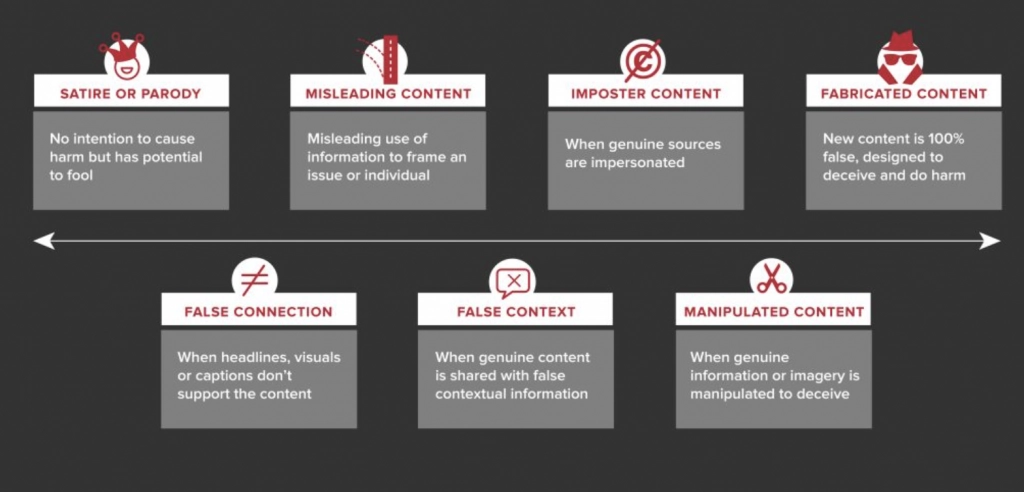
The diagram above offers a comprehensive definition of fake news. Within the online universe of fake news, there are toxic comments that are placed on online platforms. For a news site, this can be a huge conundrum that can lead to various problems, like:
the credibility of the said site being affected,
the spread of online toxic culture,
a decrease in news site popularity, and
I’ve narrowed it down to four major problems that news sites could face although there are more. However, for the subject of this blog post, these four main points will create the conversation milestones that are most pertinent. As a news site owner, who is competing in the domain that is the online news, posting fake news (without checking your sources) can essentially be the bane of your existence.
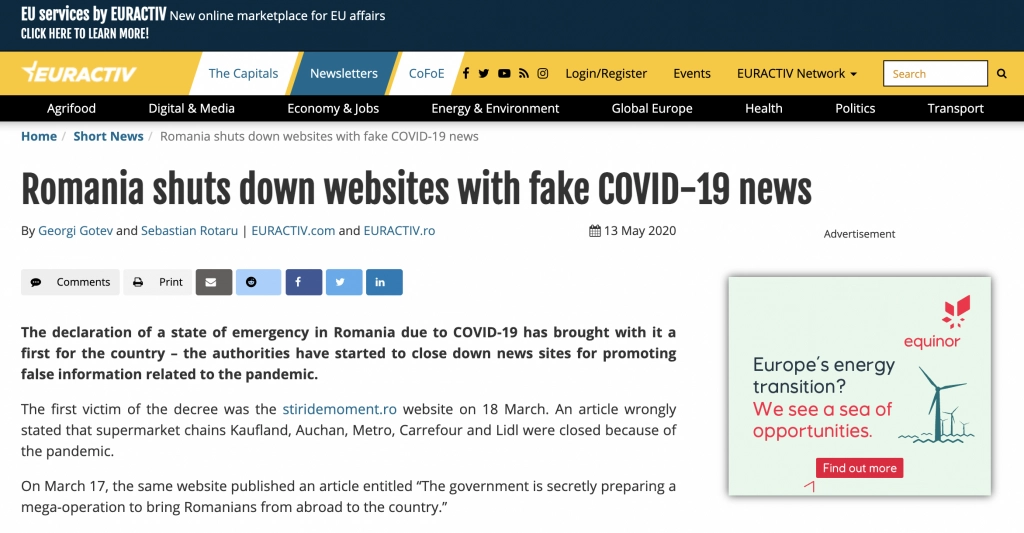
Consider the above incident where the government of Romania intervened to shut down fake news sites. That is just one example of fake news creating a ruckus. Another gargantuan movement of fake news that started in the USA, but went global was the QAnon Conspiracy. With more and more people moving online and with traditional media dying, there is no doubt that fake news is a monster that needs to be addressed convincingly. At a time when the world is tethering on the edge of a pandemic gone truly global, more and more online media consumers are trying to make sense of the world by embracing conspiracy theories.
Fake news, of course, has been around since human interactions were possible. It is a potent issue today because there are more eyeballs exposed to misinformation, and this leads to erroneous decisions being made that affect the larger community. This train of thought would be the ideal starting point to segue toward the next part of this conversation, which addresses fake news and its impact on the world around us.
Fake news and its impact
Republican Jimmy Gomez’s assertion that -- When fake news is repeated, it becomes difficult for the public to discern what is real -- is an accurate reflection of the virus-like spread of opinions and news that are fake. Whichever side of the pond you are on, there is an opinion that needs to be meted out. More often than not, there are emotions, which are boiling at the fingertips, that are typing away at the keyboard.

What if I told you that search engines like Google egg you on? Egg you on to have an opinion and interact with content that is divisive and pernicious? Do you know what strongly influences your worldview? Algorithms on the internet. When it comes to forming an opinion, you need to listen to both sides of a story. Canceling one perspective is part and parcel of cancel culture, and goes against all principles that define egalitarianism.
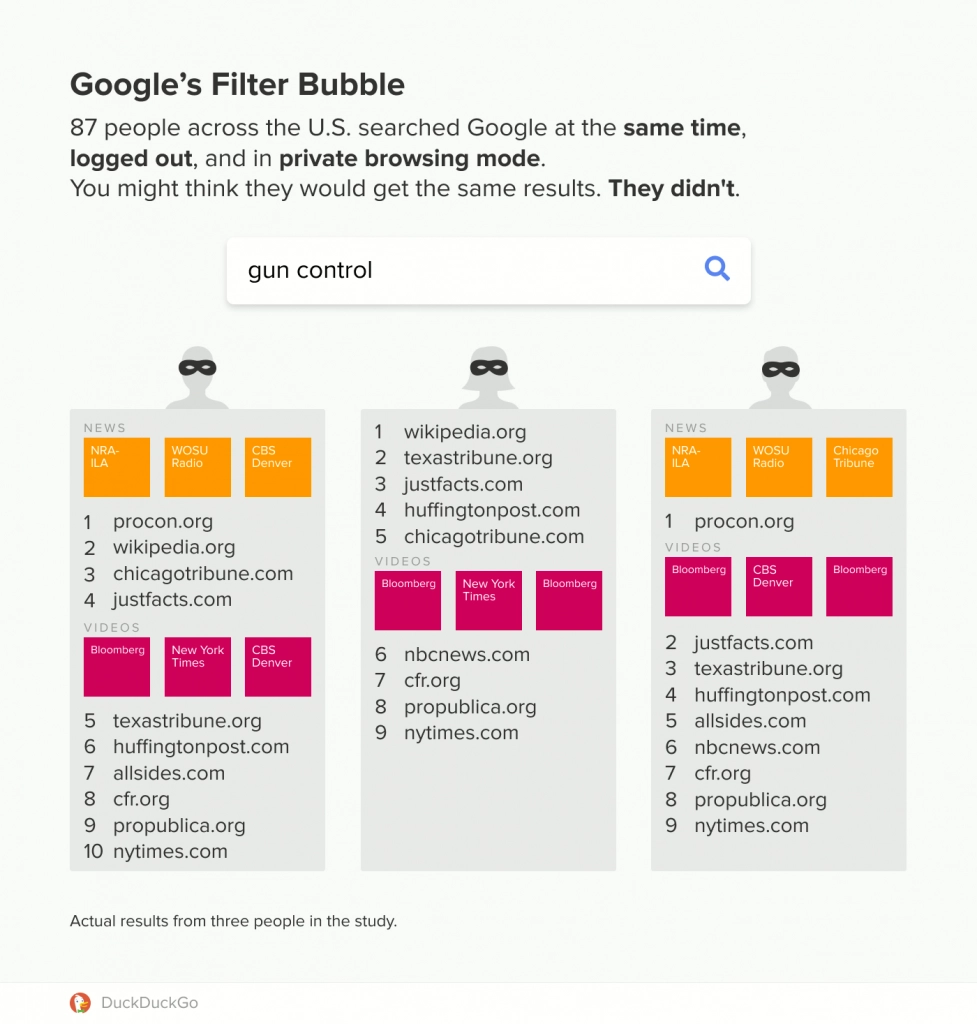
DuckDuckGo is a search engine provider that I personally use. The folks behind it have written an excellent article on Google’s filter bubble, which has served to change your reality. Is this a big deal? It is. What Google’s filter bubble essentially does is create the world that you want. If your propensity is towards toxic femininity then that is the data that will be shown to you. If your propensity is toward how Scuderia Ferrari is the best F1 team out there, then that is what is shown to you.
Google has moved on to becoming a tracking engine, and this only serves to create the world that you desire based on your personal data. But, how is all of this relevant to fake news? Simple. Regarding fake news, filter bubbles have a particularly damaging reach because fake news stories often contain exaggerated, falsified claims that algorithms looking for specific keywords or tags would likely be attracted to. This is a feature that many of the creators of fake news are embracing.
In today’s pluralistic democracy, every voice counts. Behind every vote, there’s an opinion. This opinion is formed when people interpret the information that reaches them. Now, let’s look at some statistics to put some proof into the pudding.
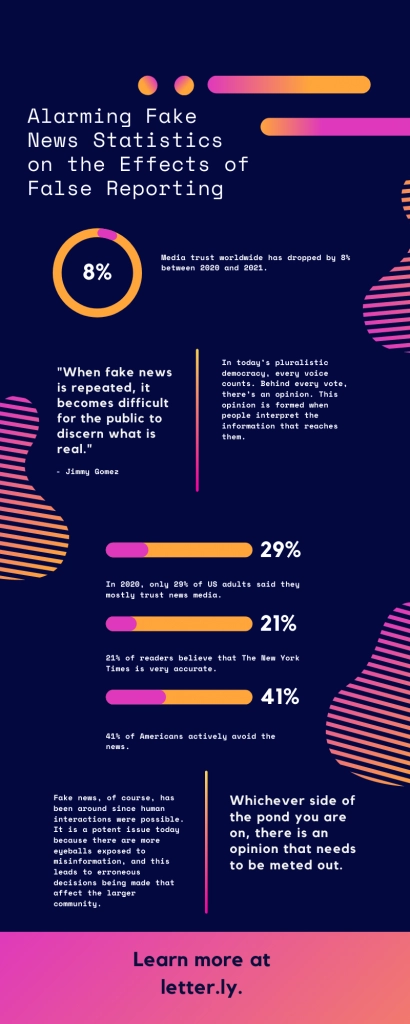
The above infographic takes data from this particular article on fake news statistics. One of the more alarming statistics for a news site owner would be the decreasing trust in media organizations. Media trust has fallen to a dismal 8% between 2020 and 2021. I would surmise that it is a combination of biased reporting and wrong information that has led to such a downward trend. In other words: fake news.
Opinionated articles, which focused on the Covid-19 pandemic, that proved to be erroneous have put a dent in media trust. With social media and blogging platforms allowing free reign on freedom of speech, there is no chaperone that can sift through all the information that can lead to mass hysteria and loss of life. Or, is there?
Moderation is a solution
When it comes to identifying fake news, there is always the help of technology to lean back on. Technology comes in the form of AI. Yet we know that algorithms are part of what spreads fake news - because juicy yet false stories which become popular can be pushed out to new eyeballs by the software that runs social networks. But some programmers think computer code could also be part of the solution by helping with curation or moderation.

Based on the video above, you will see that there needs to be human intervention at some point. Yet using such algorithms means that there is some method to the madness. But the question that arises is whether there will be biases even when it comes to the sources.
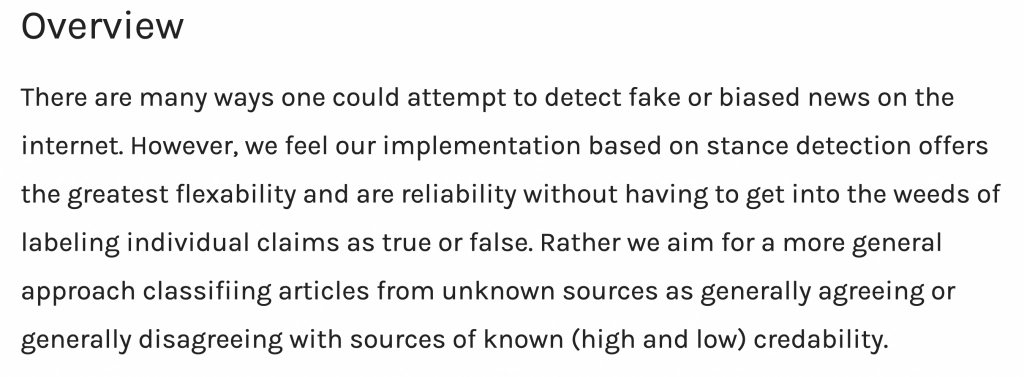
Kastan Day addresses this in the above screenshot taken from his blog. At this point in time, what is needed is a gatekeeper who can manage the content and viewpoints that can be posted via online commenters on sites. While there is an abundance of fake news floating around online, and while it is in your best interest as a news site to be credible and unbiased, there is also the issue of spammy comments and viewpoints that border on fake news that are posted online. Is there a solution to this?
There is a solution and it is a chaperone; it is called: Moderation. Fakery is turning out to be big business; after all, it did help Donald Trump become the 45th president of the United States. Yet before we all saw the light when it came to how fake news started spreading, there was toxicity anyways online, and this sent most news sites to give up on having an online commenting platform.
NPR, CNN, Popular Science, Chicago Sun-Times, and Reuters all, at one time or the other, removed comments on their sites. Scott Montgomery of NPR said it best, "After much experimentation and discussion, we've concluded that the comment sections on NPR.org stories are not providing a useful experience for the vast majority of our users."
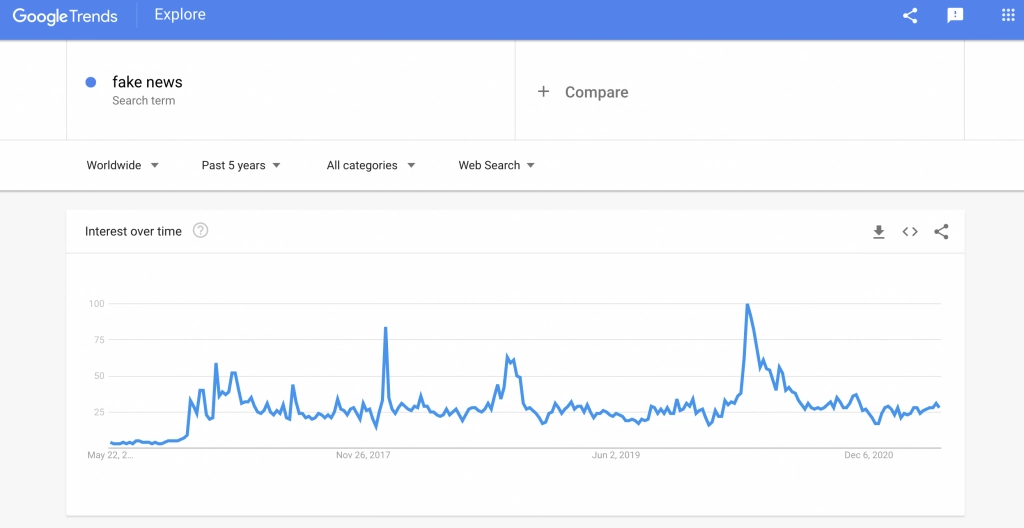
If toxicity is King then fake news is Queen. Both seem to be synonymous with each other. The Google Trends graph for fake news shows that it has had sustained interest over time. Many sites went in the direction of doing away with the comments facility, but for small and independent news sites whose web analytics proves to be its bread and butter with regard to garnering advertising revenue, this serves to be a shot in the foot.

Online algorithms are designed so that interactions and engagement lead to visibility for your content. One of the main ranking factors for your site would be the number of comments on your news site. This would show Google that your site is indeed worthy of being ranked. So, here lies the conundrum: to have comments or not? On one hand, you have to spend plenty of resources to manage your comments, and if you choose not to have comments, you are foregoing a chance to engage with your audience and create credibility for your news site. Instead of taking an extreme decision to do away with comments, what is required is a well-versed community manager or online moderator.
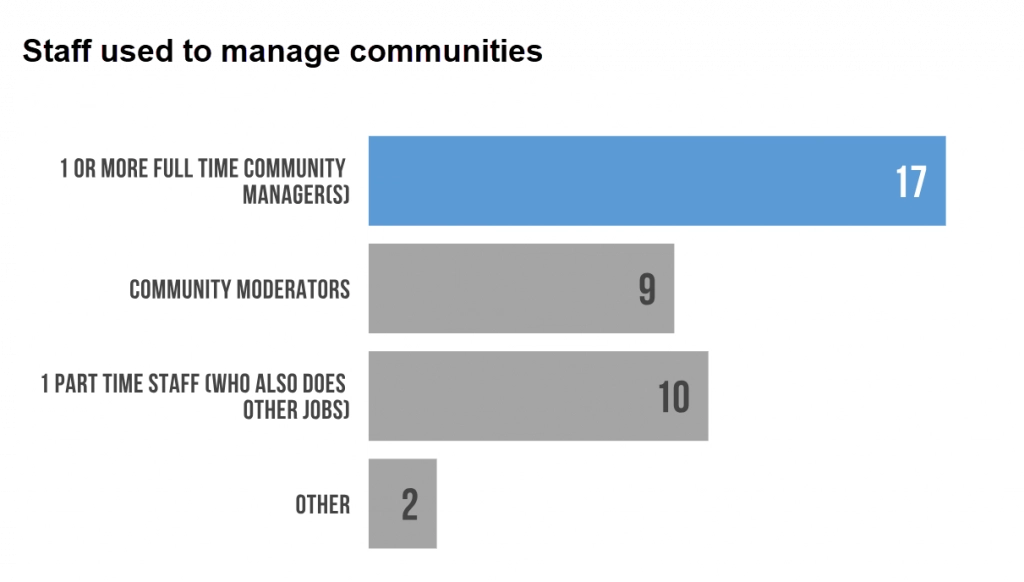
Online moderators are responsible for building and maintaining a brand's community -- both online and offline -- and public perception. The job requires engaging audiences on a variety of outlets including online forums, social media platforms, Slack, in-person groups, and more to reach all audiences where they are.
There is consensus that every job has its list of pros and cons. And while burnout is a serious issue, nothing could have prepared me for the issues that online moderators face. This is a serious article and serves to shed some light on the seriousness of online moderation and the effects it can have.
Now we know that news sites have to deal with toxic comments and fake news or both. But we also know that having an online moderator can help, but there are downsides since as humans they will feel the burden of toxicity and fake news. What now? The solution can come in the form of a commenting system that can take the burden away from moderation.
An online commenting system is moderation too
I mentioned earlier how if toxicity is King then fake news is Queen, and part and parcel of this entire domain are negative and erroneous comments. Moderation could possibly be the only solution when it comes to sifting through true news and fake news.

Content moderation can be a very taxing endeavor, and the fact is that using the right technology can help you manage the reputation of your news site without leading to burn out. But with online interactions and engagement being a key factor in helping you get eyeballs onto your site and maintaining online credibility, choosing an online commenting system is in your best interest. One of the most important reasons human moderators are necessary is because they’re more skilled at reading between the lines. Hidden meanings will sometimes be lost on an AI when in many cases, a human could easily grasp the meaning.
There are many reasons why a commenting system makes sense on a news site. Here are a few:
A proper commenting system, like Hyvor Talk, which is rich in features and provides a great user experience, can increase your blog’s engagement factor, which will improve your SEO.
Comments can improve your keyword density ratio, which will help you rank better on Google’s SERP.
Comments help to build relationships with your readers. This leads to credibility and authority.
For a news site, it is imperative that you get a feel for how your core audience thinks. Commenters will post their queries. What this will do is help you identify content gaps and create new content.
In a previous section of this blog post, we identified how an active comments section on any site is a ranking factor that Google takes into account. With so much content being generated by news sites, publishing content that sticks with your readers is significant. Weighing in and interacting with your viewpoints will showcase if your site is worthy of being ranked by Google.
Additional Resources:
If you are about to create a news site or are looking to migrate to a new online commenting system and superpower your interactions and traffic, here are some resources. These will help you keep fake, toxic, and spammy comments at bay by using Hyvor Talk:
Content Moderation: The Different Types and their Importance
User Badges, Shadow Banning, Trusting, Email Moderation, and more…
Choose a single source of truth
A commenting system, which offers a great user experience to the user who is commenting and the moderator who is moderating, is part of the solution when it comes to gatekeeping the reputation of your site. The truth today has many shades of grey and stays hidden in the biases of the person viewing the information.

There are many who search online to substantiate their confirmation bias and this is something that can be seen in the current Palestine and Israeli conflict that is raging in the Middle East.
People will believe what conforms to their inner voice or beliefs, but as a voice that is objective in its dissemination of information, credibility is born out by stating the truth.
What should be championed is stating the truth and choosing the right side of the coin. In order to manage the narrative and moderate online opinions, ensure that you create a foolproof commenting policy like this. Remember that the news can change perceptions, and perceptions often become reality.








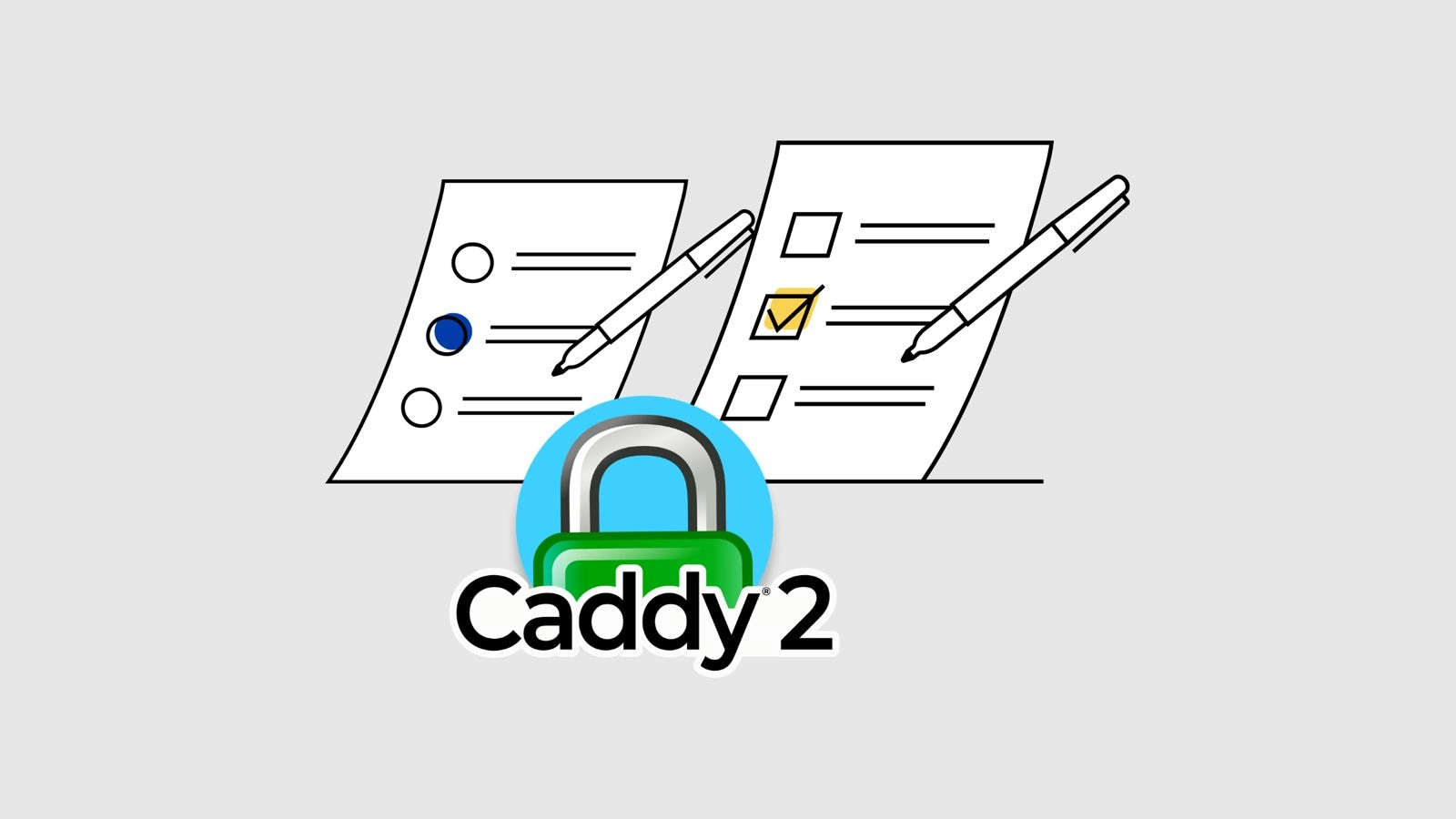
Comments